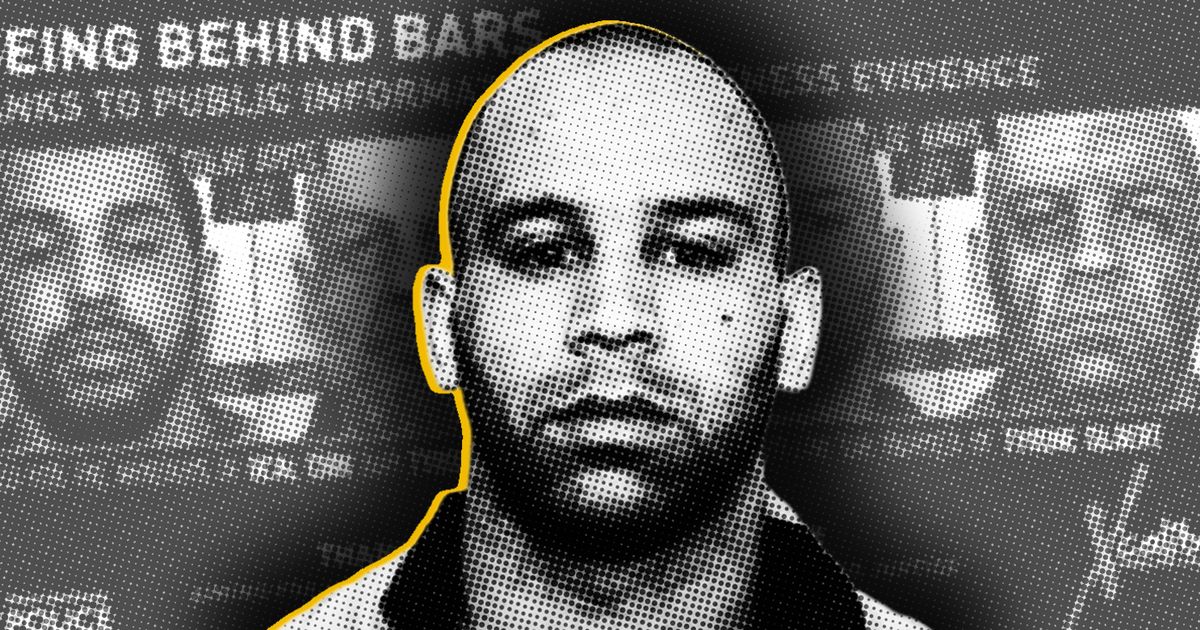‘There are no untouchables’
07:03, 23 Aug 2025Updated 08:23, 23 Aug 2025
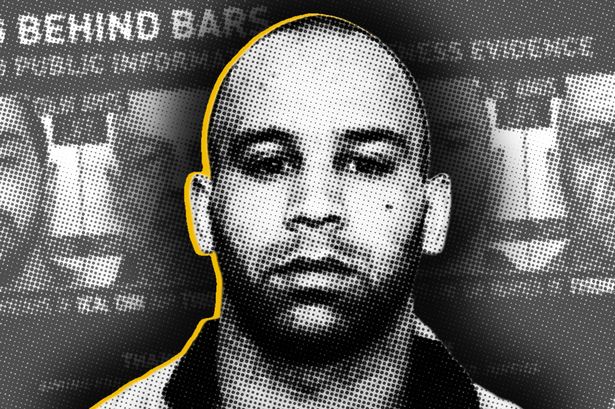 Lee Amos(Image: GMP/M.E.N.)
Lee Amos(Image: GMP/M.E.N.)
Lee Amos was reviled by his foes, the police and many others for his heinous crimes.
To his family, he was a caring father and son trying to make the best of his time behind bars. It’s a dichotomy many who have written about big-time criminals are familiar with.
Gooch gang boss Amos did terrible things when he was a younger man, helping Manchester earn its unwanted nickname ‘Gunchester’ in the 2000s. He thought he was ‘untouchable’.
Sign up to the MEN Court newsletter here
Yet the picture painted of him this week – during an inquest into his death from a heart attack, at HMP Oakwood, a privately-operated category C prison in Staffordshire, on April 22 last year – was of a sickly man whose loved ones wanted answers about the care he received behind bars.
Amos had Crohn’s disease. A fellow inmate took hold of his hand and assured him ‘everything’s going to be alright’ while he sweated and turned blue, clutching his chest in agony in cell 201 on A Wing.
It wasn’t alright. Amos had an undiagnosed heart condition. He died of a heart attack, just as his father – who hadn’t taken much of a role in his early upbringing – had done four years earlier. Amos was 48.
He never became the aged version of himself police mocked up for a billboard when he and an associate were jailed in 2009 for a drive-by shooting two years earlier.
Mourners dived for cover when Amos and four other Gooch gang members opened fire, killing Tyrone Gilbert, 24. Amos had also been suspected over the murder of the man for whom the wake was being held – Ucal Chin – but the jury which convicted him of Mr Gilbert’s murder couldn’t reach a verdict. The judge ordered that the charge lie on file.
 Colin Joyce
Colin Joyce
Known by the nickname ‘Cabbo’, Amos was ordered to serve life with a minimum term of 35 years. Fellow Gooch gang boss Colin ‘Piggy’ Joyce was also jailed for Mr Gilbert’s murder and ordered to serve a minimum of 39 years.
Six former Gooch members testified against the pair, who were also convicted of attempted murder; and possession of firearms. Six weeks prior to Mr Gilbert’s funeral, Joyce ‘executed’ Mr Chin, 23, in a daylight ambush.
Joyce pulled up in an Audi and peppered Mr Chin’s car with 9mm bullets from a converted Russian Baikal self-loading pistol. Mr Chin was killed because Amos and Joyce believed he was a member of the Longsight Crew.
The artificially-aged faces of the deadly gang members were famously plastered all over Manchester. A giant billboard at the side of Princess Parkway appeared along with the words: “Ageing behind bars.”
Police said at the time: “There are no untouchables.”
Detectives also suspected Amos was involved in the fatal shooting of Jessie James, 15, on the evening of September 8, 2006, in Moss Side – even if he didn’t pull the trigger.
A senior officer told the Manchester Evening News shortly after Amos’ death last year: “His name was in the mix. There’s no doubt about that. But in the end there was no evidence that he pulled the trigger. For me, there were other stronger candidates but his name was certainly linked.”
None of Amos’ crimes were mentioned at Stoke-on-Trent and North Staffordshire Coroners’ Court on Wednesday (August 20), only that he was a serving prisoner who was being treated for Crohn’s disease, a chronic bowel disease which can cause severe pain.
Amos’ brother Joseph, in a statement read at the inquest, said his sibling – the eldest of four – was born at North Manchester General Hospital in February 1976, but he grew up in Longsight and Moss Side in south Manchester.
He was raised by his mother as his Nigerian father did not have contract with the family, he said. He mentioned the murder of their brother Stephen Babatunde Amos in 2002.
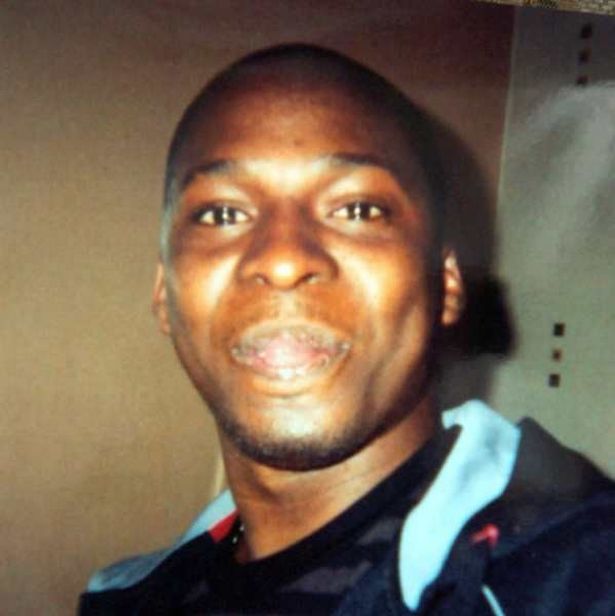 Tyrone Gilbert
Tyrone Gilbert
He was shot outside Bexx Bar in Ashton-under-Lyne while Lee Amos was in prison for another offence, possessing a stash of guns. Dead set on revenge Joyce and Amos bided their time in jail.
When they were finally released on parole there was a dramatic escalation in gun crime, which culminated in the two deadly drive by shootings.
Amos started working at a trainer stall on a market until he was aged 18 but then was unemployed, said Joseph. His brother was ‘always trustworthy’ and his family had ‘always been supportive of him’ while he ‘offered his assistance when needed’, he said.
Amos lived at his mother’s home with his partner of ten years with whom he had a daughter in 1990 and a son in 2001, Joseph added.
Amos later moved to Nottingham and in 2002 he was handed a three-year sentence, the inquest heard. He was arrested in 2006 and had been behind bars ever since, with friends and family visiting him regularly. He was diagnosed with Crohn’s disease behind bars in 2018.
It ‘came as a shock to the family’ when their father died of a heart attack in Nigeria while their mother had also suffered health problems, Joseph said.
Amos had ‘moved around’ different prisons and arrived at HMP Oakwood in July 2023. He co-ordinated and ran a number of prison projects and even earned a degree in social policy, the inquest heard. He trained in the prison gym ‘most days’ and never ‘raised any concerns’ with other inmates.
The day before his death, Joseph said he spoke to Amos on the phone. They spoke about football and ‘how bad Manchester United were’. He was ‘in good spirits’, the inquest heard. His death had ‘come as a shock to the family as he was ‘loved’ as a father, son and a friend, Joseph added.
The inquest heard how another inmate, Mathew Wright, who was on the same wing, told police he witnessed Amos sweating, ‘clutching his chest’ and struggling to breathe following a visit to the gym.
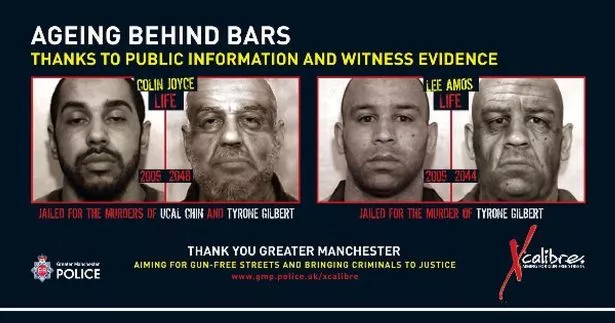 The GMP billboard(Image: GMP)
The GMP billboard(Image: GMP)
Mr Wright thought Amos had ‘had just worked hard in the gym’ that morning, Detective Constable Hayley Taylor, of Staffordshire Police, told the inquest.
Amos asked the inmate to sit with him, but his condition deteriorated and prison staff and then paramedics were called to the prison, said the detective.
DC Taylor told the hearing that Mr Wright comforted Amos, held his hand and told him ‘everything’s going to be alright’ until help arrived.
The inmate said Amos’ lips turned blue and when paramedics attended they began CPR before he was taken to New Cross Hospital in Wolverhampton where, he died.
His cell was locked down and a search uncovered no illicit drugs, only pain killers and his prescribed medication. Injuries were found on his body but these were ‘consistent’ with efforts to revive him, DC Taylor told the court. She agreed ‘nothing untoward’ had happened to Amos involving anyone else.
Christopher Morris, an advanced nurse practitioner based at HMP Oakwood, said Amos had arrived at the jail on July 23, 2023, following stays at other prisons and that he received a ‘comprehensive’ health screening in line with guidelines published by the National Institute for Health and Care Excellence (NICE). He had by then been diagnosed with Crohn’s disease, he said. Health notes from previous prisons were forwarded to HMP Oakwood, he said.
While at HMP Oakwood he received treatment for Crohn’s under the care of a gastro-enteritis consultant at New Cross Hospital, said Mr Morris.
Five days before his collapse, Amos was given antibiotics for a tooth abscess, the court was told. Otherwise his health was considered ‘good’ and his notes contained ‘nothing’ to suggest he was at risk of a cardiac arrest, said Mr Morris.
The inquest was attended by a number of Amos’ family and one questioned why there was a discrepancy between blood test results recorded at the prison and the hospital.
Mr Morris said that while the prison would routinely sent blood results to the hospital, the hospital did not do likewise. Asked how medics could conclude he was okay, Mr Morris said all the results were ‘within acceptable ranges’.
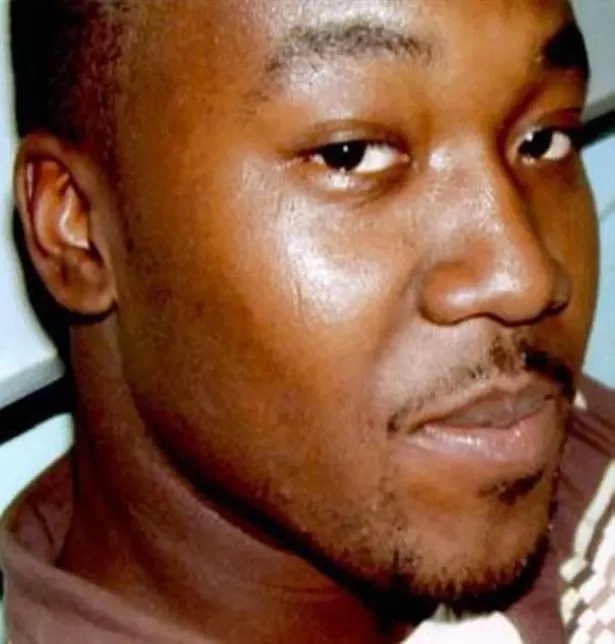 Ucal Chin
Ucal Chin
Mr Morris confirmed Amos received his Crohn’s medication was 14 days late on one occasion. He said it was ‘probably’ scheduled to be delivered to him but he said he could not explain the delay.
Asked why the prison did not have a ‘care plan’ in place to treat his Crohn’s disease, Mr Morris said Crohn’s disease did not figure in the NHS list of long-term conditions which required a care plan. Amos was said to have been ‘managing well’ with his condition.
In a statement read to the inquest, HMP Oakwood custody officer Sophie Evans said Amos was ‘pleasant and easy to interact with’. She said she remained ‘strictly professional’ while Amos ‘kept himself to himself’. He was ‘polite’ and during his time had raised a ‘number of concerns’ with her, said Ms Evans.
During the morning before his collapse, she had opened his cell door and said ‘hello’ and he was already dressed in shorts and ‘gym top’ and was ready to train in the gym as usual, said the witness. “He seemed his normal self,” she said. He asked her about a ‘project’ he was running in the jail.
Ms Evans recalled later that Mr Wrighted shouted at her from Amos’ cell door to get help and prison staff were summoned and an ambulance was called.
The witness said she asked Amos if he was okay and he replied ‘yes’ although he said he felt a ‘tingling’ down his left arm. Mr Wright was holding Amos’ hand at the time, she said.
Amos was put into the recovery position and an emergency button was pressed, said Ms Evans. Amos was ‘sweating massively’, ‘cold to the touch’ and was turning blue, she said. Amos then ‘started to go into seizure’ and staff started to give him CPR.
A defibrillator was bought to the cell and about ten minutes later paramedics arrived and Amos was taken to hospital, the inquest was told.
A post mortem examination concluded Amos died of cardiac arrest contributed to by ‘ventricular fibrolation’ and ‘cardiomegaly’. The examination found Amos had ‘underlying cardiac disease’.
Recording a conclusion of natural casuses, area coroner Emma Serrano said: “All the evidence I have heard leads me to conclude this was a cardiac-related death.” She said he died ‘suddenly and unexpectedly’ and added that he had ‘no medical history’ of heart problems.
